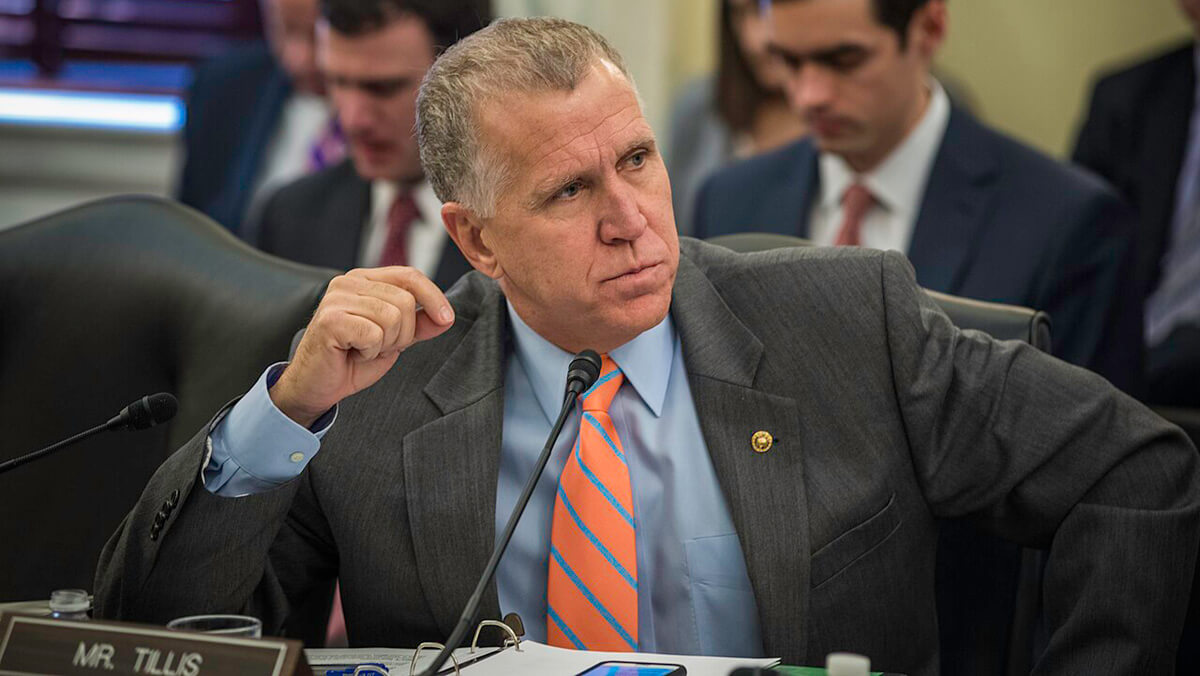In a significant political development, Republican Senator Thom Tillis of North Carolina announced on Sunday that he will not be running for reelection, a decision that follows his vocal opposition to a legislative package endorsed by former President Donald Trump. The announcement, made on June 29, 2025, underscores the growing rift within the Republican Party between those who align closely with Trump's vision and more moderate voices advocating for bipartisan cooperation.
Senator Tillis, a seasoned lawmaker, has often been at the center of controversy within his party for his willingness to engage with Democrats on critical issues. In his retirement statement, Tillis expressed pride in his public service achievements, particularly emphasizing bipartisan victories like the first-in-the-nation eugenics compensation legislation and significant investments in mental health. "I am most proud of my bipartisan victories such as passing the eugenics compensation as Speaker, and working across the aisle in the Senate to pass the largest investment in mental health," Tillis stated, reflecting on his tenure.
However, Tillis's approach has not been without its challenges. His commitment to working with the opposition has often put him at odds with his party, which has increasingly favored a more partisan approach to governance. This was apparent when he recently opposed Trump's "Big, Beautiful Bill," expressing concerns about its impact on Medicaid funding in North Carolina. Tillis's stance led to immediate backlash from Trump, who took to his Truth Social platform to criticize the senator, suggesting that Tillis was seeking personal publicity and misrepresenting the financial implications of the bill.
The outgoing senator painted a picture of a polarized Senate where moderate voices are unwelcome, a sentiment that echoes the experiences of unnamed Democratic colleagues who faced similar challenges for their stance on the Senate filibuster. Tillis lamented the loss of such leaders who prioritized functionality over political expediency, noting their absence in the Senate chamber is keenly felt.
Despite his decision to retire, Tillis committed to serving his constituents through the remainder of his term, expressing gratitude for the relationships built during his time in office. He remained focused on the work ahead, stating, "I look forward to continuing to serve North Carolina over the next 18 months."
Tillis's retirement opens the door for potential candidates to vie for his Senate seat, with Trump indicating his interest in evaluating and endorsing a suitable replacement. Social media commentary, including a tweet from conservative commentator Charlie Kirk, frames Tillis's departure as an opportunity to align North Carolina's representation more closely with Trump's agenda, emphasizing Tillis's past opposition to border security and his role in delaying the confirmation of Trump's nominees.
The implications of Tillis's retirement are far-reaching, signaling a shift in the Republican landscape as the party grapples with its identity and direction ahead of future elections. Tillis's career has been marked by his efforts to bridge partisan divides, but his departure illustrates the challenges moderates face in an increasingly polarized political environment.





